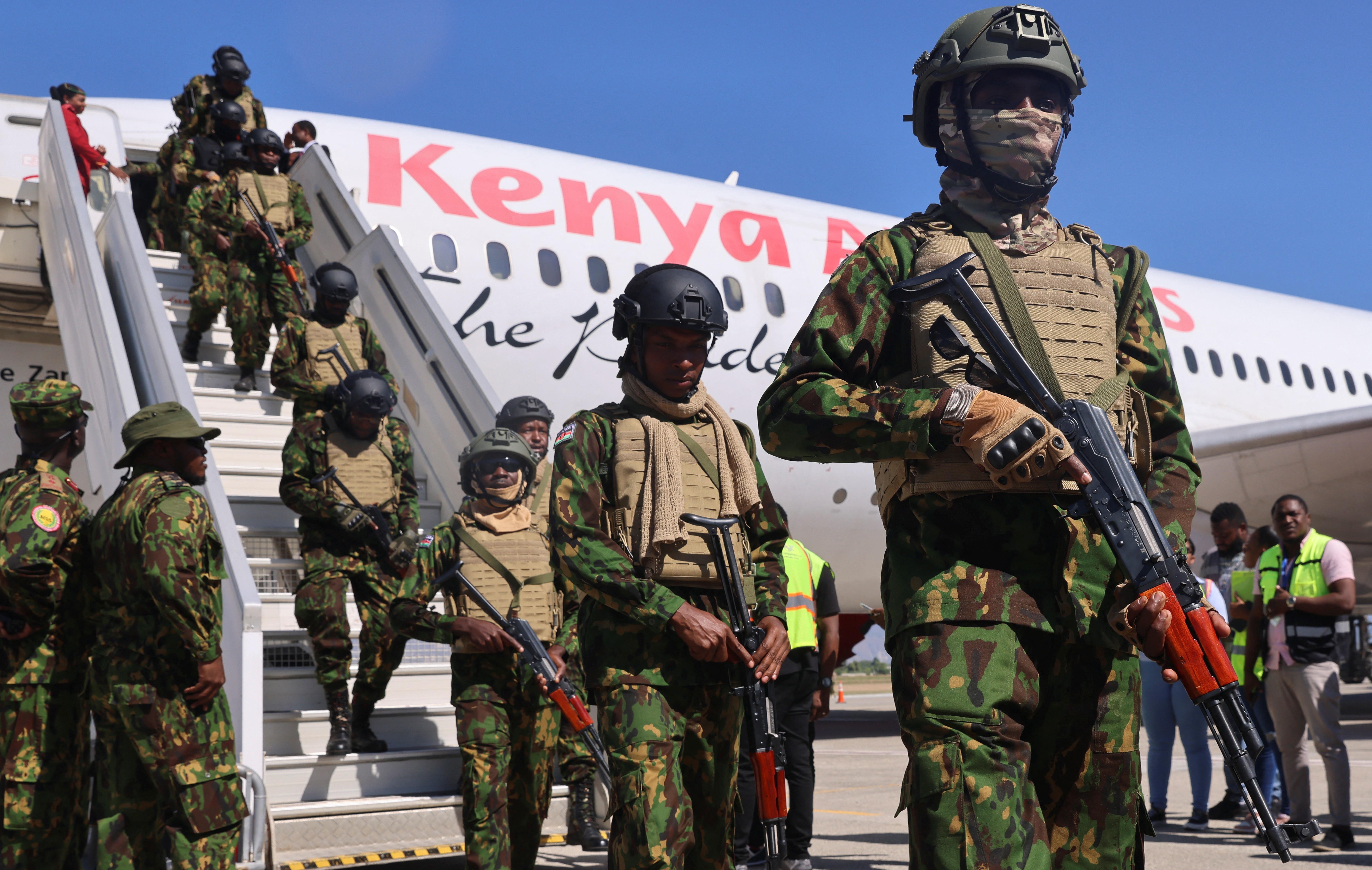Haiti is sinking deeper into crisis as gangs tighten their stranglehold on the country, now controlling more than 85% of the capital Port-au-Prince.
More than one million people are internally displaced, sexual violence against children has increased by 1,000% and thousands struggle to receive food, water, and health and sanitation services. U.N. Independent Expert on the Human Rights Situation in Haiti William O’Neill said in a press statement last week that he saw in Haiti “the pain and despair of an entire population,” and called on the international community to intervene “without delay,” as the crisis reaches a tipping point.
Haiti has a long and fraught history of prolonged foreign interventions that have failed to secure lasting political stability, and the current crisis is no exception. Experts argue that international actors must rethink how they allocate their efforts and resources in Haiti to more effectively support the country’s path to stabilization.
Gangs in Haiti have steadily expanded their control of the country since the 2023 assassination of President Jovenel Moïse, seizing the power vacuum left in his wake. The crisis deepened in April 2024 when acting Prime Minister Ariel Henry resigned, paving the way for a transitional government. But the U.S.-backed Transitional Council has since struggled to stabilize the country or move it closer to presidential elections.
In a bid to restore order to the increasingly insecure state, the U.S. and Kenya entered into a defense agreement in 2023 to deploy Kenyan troops to Port-au-Prince. But since their delayed arrival to the capital in June, the Kenyan troops’ haven’t made meaningful progress in curbing gang violence. Jake Johnston of the Center for Economic and Policy Research says the mission’s shortcomings underscore a broader issue: foreign intervention in Haiti has lacked the strategic planning necessary to address the root causes of the crisis, both in the short and long term.
One major obstacle is that the mission is operating well below its already limited capacity. The mission currently consists of approximately 800 of the pledged 1,000 Kenyan officers so far, 168 of whom arrived in February. This number has proven inadequate in the face of the estimated 200 active gangs in the country.
O’Neill said in a statement to the press that stabilizing the country would be “doable" if the force was expanded to 2,500 or 3,000 officers.
However, Johnston says that while additional personnel could help in regaining territory from gangs, a larger force won’t resolve the mission’s deeper structural flaws.
The Kenyan mission was originally intended to support the Haitian National Police (HNP) in stabilizing violence while the transitional government worked towards establishing political stability. Johnston says this plan failed to contend with the HNP’s deeper issues — the organization is deeply politicized and many underpaid officers deal directly with gang members to privately make money.
“Strengthening that through this imported security force was an incredibly fraught proposal from the very beginning,” Johnston says, adding that a more sustainable approach would have prioritized reforming the Haitian police force to address these entrenched problems.
Another critical yet overlooked driver of the conflict is the steady influx of arms into Haiti, most of which come from Florida. Cutting off the gangs’ ammunition would significantly weaken them, Johnston says, yet this is not a focus of the Kenyan mission.
These shortcomings raise the question of whether limited resources and energy from foreign actors are being directed to the right priorities. Millions of dollars have been funneled into supporting the police force, while support of other critical areas — such as anti-corruption mechanisms and governance reforms that have long plagued Haiti's government — have been neglected.
“You can’t address this phenomenon strictly through force. It’s putting all of the eggs in this one basket to the detriment of other things,” Johnston says.
International actors have a role to play in supporting Haiti’s electoral and constitutional process, which will be essential for restoring legitimacy between Haitian civil society and its leaders and establishing long term stability, says Eduardo Gamarra, an international relations professor at Florida International University who has advised security reform and democratization in Haiti. This includes rebuilding Haiti's electoral system “from scratch” by updating outdated voter registries, establishing electoral oversight mechanisms, and implementing protections against fraud.
However, such efforts demand sustained investment from the international community. The question of which country or international body would support these more meaningful reforms remains unclear, as few countries want to absorb the challenges Haiti is facing, Gamarra adds.
Haiti’s current vulnerability is further exacerbated by its reliance on foreign aid, the majority of which comes from the U.S. and has now been abruptly pulled back after the Trump administration issued a 90-day pause on foreign aid last month. More than $300 million in aid to Haiti has now been halted, much of which was allocated for humanitarian assistance. The consequences are already being felt on the ground, as shortages of food and critical health supplies worsen.
“The money wasn’t much, but its impact was huge given Haiti’s current reality,” Gamarra says.
For now, U.S. support of the Kenyan mission will continue. In a February press conference, Secretary of State Marco Rubio announced that the Trump administration was committed to continuing to work with the Kenyan forces, and that its numbers need to increase to restore stability to the country. Rubio also approved exemptions in the funding pause for $40.7 million in foreign aid for the mission. However, Johnston says it is unlikely that the Trump administration will follow through with the Biden administration’s plans to transform the mission into a U.N. peacekeeping operation, which would allow for funding for the mission to come from member nations.
While reducing Haiti’s reliance on foreign aid should remain a long-term goal, Johnston emphasizes that an abrupt loss of international support presents immediate and significant challenges to the country’s stability.
This reality becomes even more critical when considering that current international efforts on the ground, meant to quell the severity of the situation, are failing to address Haiti’s most urgent security needs.
“Foreign intervention is a daily reality in everything that's happening in Haiti. Even if it's not direct, the situation has been defined by that in the past and as a result of those past interventions,” Johnston says. “You can't disentangle these things. So, the key is to change the modality of intervention.”















